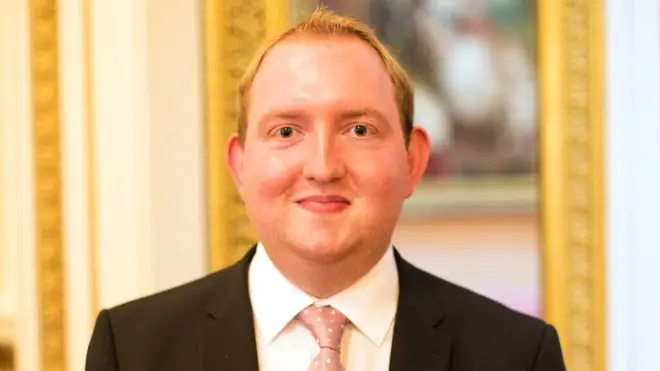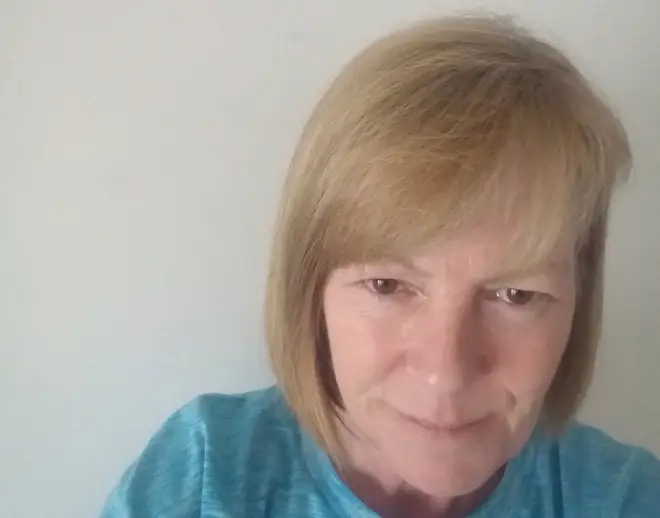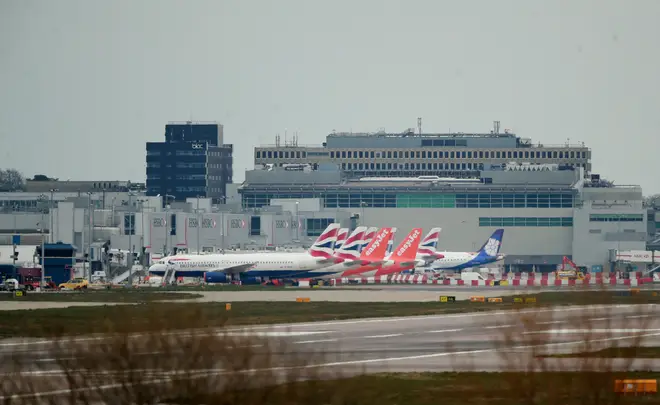
Iain Dale 10am - 1pm
30 March 2020, 20:53

Government to fly home tens of thousands of stranded Britons
Britons stuck abroad have criticised the "lack of clarity" over the Government's plans to fly them home after flights were suspended during the global coronavirus crisis.
Foreign Secretary Dominic Raab announced the Government has made an arrangement with airlines to fly home tens of thousands of stranded British travellers where commercial flights are no longer available.
Speaking at the Downing Street press conference on Monday, he said: "Under the arrangements that we are putting in place we will target flights from a range of priority countries, starting this week."
Mr Raab explained that the airlines that are being included in the arrangement include British Airways, Virgin, easyJet, Jet2 and Titan, and more companies would be welcome to join.
For all the latest news on coronavirus, follow our live blog
But Adam Bradford, 27, from Sheffield, who has been stuck in Cotonou in Benin, West Africa, said it was unclear what constituted a priority country.
Mr Bradford's flight home on March 19 was cancelled and prices for tickets have risen to more than £4,000.
He said he has been in Africa since January as part of the Queen's Young Leaders youth programme, of which he is an ambassador for the Commonwealth.
"I have overstayed my visa and cannot get an extension," he said. "Thus I am here illegally until further notice."

On Mr Raab's announcement he said: "To me it's the same as last week - good words but actions need to follow."
He said that shortly after the announcement, he was told by the nearest British embassy, across the border in Ghana, that Benin did not constitute a priority country.
Mr Bradford said he is now looking for affordable flights in May, but added: "But they could well be cancelled, the ones before it were."
Mr Raab said priority would be given to the most vulnerable, including the elderly or those with pressing medical needs, and also to countries where there are large numbers of British tourists trying to return to the UK.
Shadow foreign secretary Emily Thornberry criticised the Government's efforts, saying: "We were promised a new strategy on repatriations today, but for the hundreds of thousands of Brits stranded abroad and their families back home it was just more of the same.
"More reliance on commercial flights, which, for too many British travellers based in too many locations, are simply not an option at present. More vague promises about charter flights, but none of the commitment or urgency other countries like Germany have put into this.

"More expressions of support for our Brits abroad, but no answers to any of the specific problems they are raising, from the loss of travel insurance and accommodation to dwindling supplies of medicine and money.
"We need a comprehensive and fully-funded strategy to bring our British nationals home, using every option at the Government's disposal, and to give them all the practical support and help they need in the interim. That is not what we got today, and that is not good enough."
Brian Sangha, 72, a councillor for Gravesham in Kent, who is stuck in India, said he welcomed the news but said it raised a lot of questions over who is considered vulnerable.
Mr Sangha said he is one of about 100 British citizens stranded in and around the city of Jalandhar, in the northwestern Indian state of Punjab.
"There is a lot of detail missing," he said. "What constitutes as vulnerable and, logistically, how do we get people from where they are now into the airports?
"The tricky bit is people travel in groups such as families of four, what does that mean for them? Will the vulnerable person go first and the others get separated?
"There is a lack of clarity over how arrangements will work and how people will be shifted across the country, especially countries in lockdown."

It was a view echoed by support worker Elizabeth Hazlewood, 52, from Shrewsbury in Shropshire, who is stuck in Tunisia.
She said her scheduled flight on March 25 was cancelled but she has paid for tickets to return to the UK on Tuesday.
"I would have thought all locations should be a priority to get stranded UK citizens home," she said.
Jyoti Madlani, 32, from Leicester, who is stuck in Cusco, Peru, said: "I think the message [Mr Raab] is sending out is helpful and gives a lot of hope and confidence to those who are able to access the flights.
"But it's difficult from my perspective to say it's helpful for me and all the others stuck here because I'm not sure if it will benefit us."
It was a sentiment shared by Sam Jermy, 28, who is originally from Gorleston-on-Sea in Norfolk but has been living in Xiamen, China since 2018.
He is currently in Laos and was scheduled to fly back to China on Friday night but was not allowed on his flight after the country banned foreign nationals from entering.
He is now trying to head to the UK.
He also compared the Foreign Office with that of Germany, which he said was better at communicating with its citizens.
He added: "Within 48 hours they had sorted out two repatriation flights for their citizens and clearly communicated to them that this was going to happen, everything was going to be fine and we're going to get you home.
"I've had those sentiments from the British ambassador here, but it's now Monday night and I've had three days of uncertainty and other people have been trying to find other ways out."
This is good news for Brits in India, has something been done for Brits in Pakistan where my parents are stuck @ukinpakistan @CTurnerFCO???
— Nageena (@786Nageena786) March 30, 2020
Many people also took to social media to question Mr Raab's announcement.
One said: "This is good news for Brits in India, has something been done for Brits in Pakistan where my parents are stuck."
Another explained that her grandparents are stuck in India for "far longer than the originally planned April 1st return date and its about to get way too hot for comfort over there."
"I feel really bad for them," she continued.
A Twitter user stranded in the Philippines said: "Stranded on Siargao in the Philippines. With all domestic flights cancelled and no hope of catching an international flight home.
"On lockdown, a checkpoint system is in place all over the island. Only one authorised individual can make the trip to the market to buy essentials."
This all rlly needs to end soon my poor grandparents are gonna be stuck in India far longer than the originally planned April 1st return date and its about to get way too hot for comfort over there I feel so bad and also I miss them a lot they left in November 🥺🥺
— Maya Patel (@__mayapatel__) March 30, 2020
Stranded on Siargao in the Philippines. With all domestic flights cancelled and no hope of catching an international flight home. On lockdown, a checkpoint system is in place all over the island. Only one authorised individual can make the trip to the market to buy essentials.. pic.twitter.com/vVOMJbfuVc
— Joe Caswell (@JoeCaswell7) March 26, 2020
The money has been provided to make the flights as cheap as possible, but people will still need to pay for their flights.
People have been urged to book their flights on these flights as soon as possible, and can do so through the foreign office website.
Priority booking will be given to the elderly and those with medical condition.
So far, 150,000 British nationals are back from Spain, 8,500 from Morocco, and 5,000 from Cyprus.
However, it is thought there are at least 9,000 Britons stranded in New Zealand, 4,000 in Bali, and tens of thousands more in other countries including India, Pakistan and Australia.